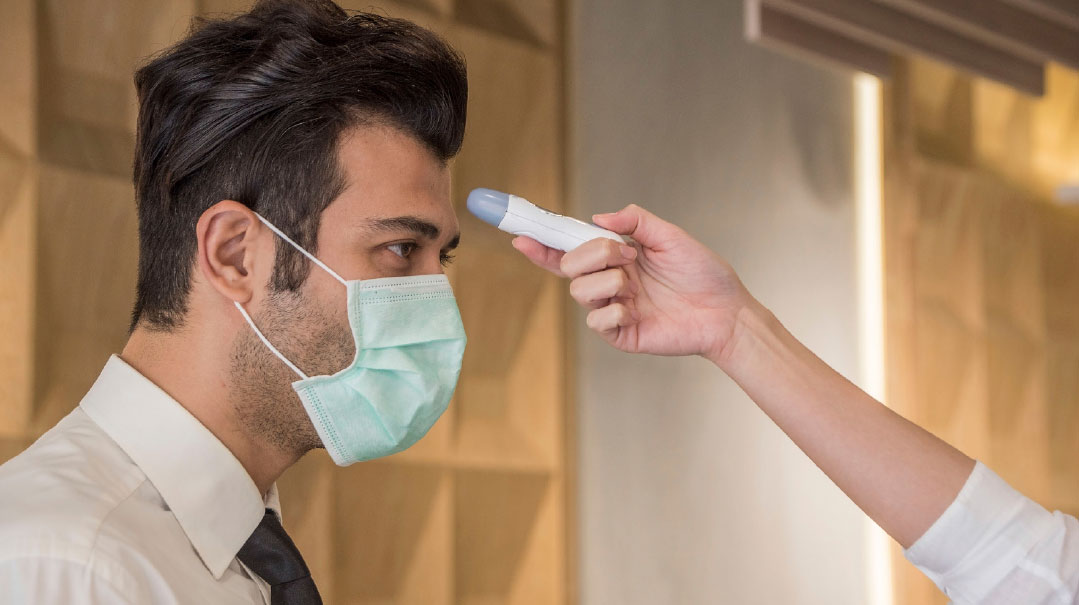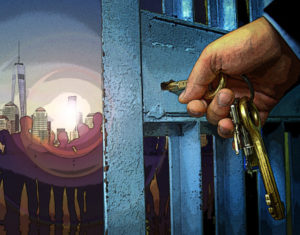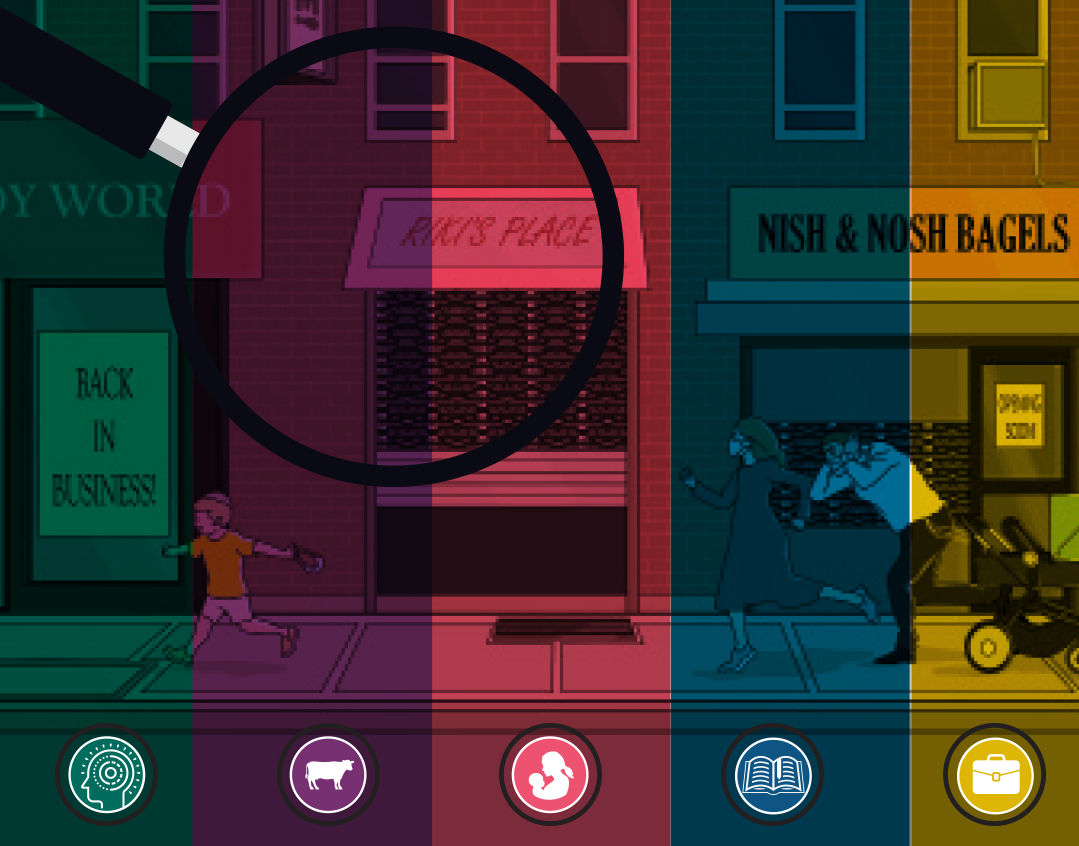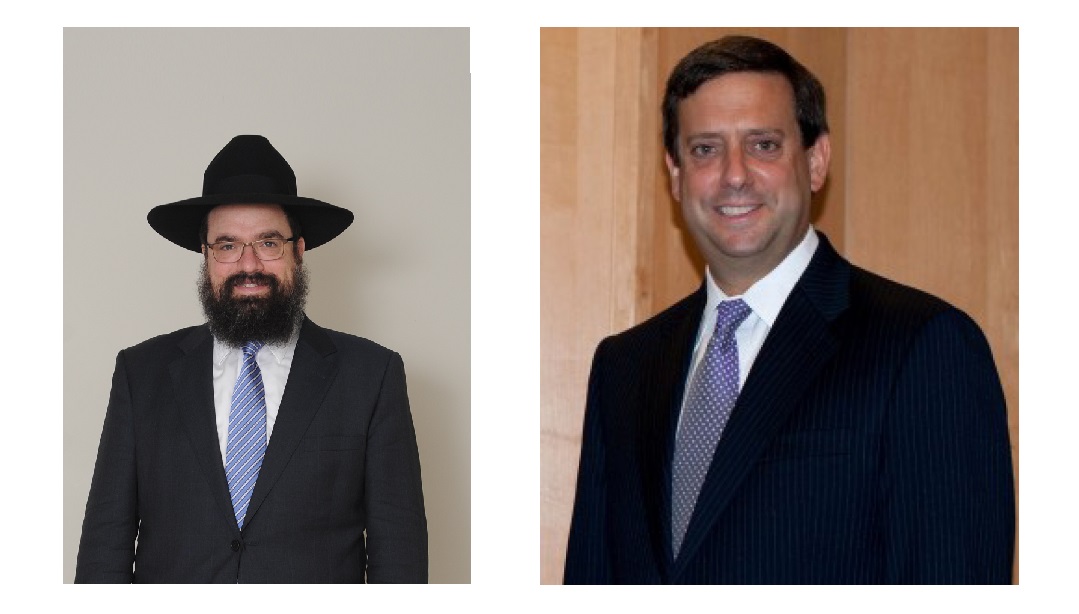Drastic Times, Drastic Measures

The man behind Israel’s hardline policy is Health Minister Yaakov Litzman

Israel’s response to the coronavirus outbreak has been quicker and more restrictive than many other countries. Almost immediately, travel bans were enacted, borders were closed, and people returning from abroad were placed in quarantine. The man behind Israel’s hardline policy is Health Minister Yaakov Litzman, who has been at the post for nine of the last eleven years.
Litzman sounds and looks worried during our conversation on Sunday. And no wonder, he’s been working around the clock managing the corona pandemic. “The past few Shabbosos a goy from the ministry was nearby me, to be able to update me on the situation if necessary.”
Although Rabbi Litzman belongs to a relatively small party, United Torah Judaism, with just seven seats, and represents a sector that many in the general population resent due to their lack of army service and dependence on government funding, he continues to rank among the country’s most admired politicians.
How did a relatively older government official (Litzman is 71), who speaks Hebrew with an American accent, isn’t active on social media, and still uses an old-fashioned “kosher” cell phone, become so popular?
Litzman’s own past is politically unremarkable and straightforward. A talmid of Rav Shaul Brus in Brooklyn’s Beis HaTalmud, he came to learn in Jerusalem, where he became close to Gur. He was selected as a companion to the Beis Yisrael on the Rebbe’s daily “shpatzir,” the rapid walks through the predawn streets near Geulah.
The next rebbe, the Lev Simcha, appreciated the sharp American and appointed him as a member of the committee to locate suitable housing for young chassidim and as part of the oversight committee of Gur’s central gemach.
Litzman smiles wryly when I ask him if he was “into politics” growing up. “Mamash not. I never cared about it. It meant nothing to me, not in America and not in Israel. I never followed political negotiations and developments.”
Which might just be his greatest asset. “He doesn’t play the same game as everyone else,” a close aide tells me. “He doesn’t backslap and schmooze, he walks into a room and gets straight down to business, and people have grown to respect that. The secular Israeli public sees that he’s not building a personal brand, like so many others, and is driven to do the best job possible. And that’s the story of his success in the polls. There’s no substitute for real hard work.”
Litzman, in his matter-of-fact way, suggests another reason for his popularity among the wider citizenry. “Small-town mayors are generally ignored in the Knesset because they don’t represent large numbers. But when it comes to medical care, we’ve treated them the same as everyone else.”
Wherever the inspiration comes from, Litzman is responsible for a series of achievements that touch all Israelis in their daily lives. On Litzman’s watch, the government has increased annual insurance coverage for pharmaceutical drugs; purchased additional MRI scanners for hospitals; built a hospital in Ashdod after 40 years of bureaucratic wrangling; saved Laniado Hospital in Netanya from collapse; and introduced free dental care for children.
Anyone who needs him knows where to find him — for years he’s kept the same morning schedule. He’s up at 3:30 a.m., recites Tehillim, reviews Chumash and Rashi, davens haneitz in the Gerrer beis medrash, learns daf yomi, and has a seder in shemiras halashon from Sefer Chofetz Chaim. In his office, a team of seven secretaries receives up to 300 calls and 150 faxes a day from the public sector, every request numbered and filed and not closed until it’s been processed. These days, Litzman is even working on Shabbos if required.
Why does it have to be the health minister himself who issues directives on Shabbos? Can’t the prime minister give the necessary directions? Have you consulted with poskim?
“Of course I’ve consulted with poskim. There are things that only a minister is authorized to order. It’s not a simple matter, but it’s a question of real pikuach nefesh, for which it’s a mitzvah to be mechallel Shabbos.”
Israel has taken a series of drastic measures. As of this writing, gatherings of over ten people are banned, which means davening can only be held with a bare minyan, event halls are closed, public transportation is reduced. Are these measures necessary to stop the spread of the coronavirus?
“We’re still in the midst of a struggle to prevent a mass outbreak in Israel. As of this minute there are over 250 confirmed cases. The rate of infection is extremely high. We’ve published our guidelines over every conceivable platform. You need to remember that not all members of the population use the same modes of communication. That’s why we’ve taken care to publish our directives in every language and in every medium necessary, to block the spread of the virus.
“It’s critical not to create panic among the public. We’re dealing with one of the greatest international crises of our lifetime. We’re in close contact with other countries, and we’ve learned from their experiences, just as they have learned from ours. It’s a common struggle with the goal of preempting the virus and preventing us from coming to a situation like Italy, chalilah. That’s why we’ve taken such dramatic steps.”
Are you aware of the impact of the emergency measures? Private business owners say they’re in danger of collapse, young couples are getting married with just a minyan of family members present, and these are only two examples.
“Believe me that I understand the significance very well. It truly pains me to think about the young couples going to the chuppah with a bare minyan, about the bar mitzvah bochurim who can’t celebrate, about the owners of event halls who have been forced to close at the height of the season, about the heads of private businesses who took loans to stock up for the pre-chag season and can’t sell their stock. I meet these people, I hear them, I feel their pain.
“I speak to parents of special-needs children, to parents of children who can’t work with their kids home from school. I understand the difficulties. I’m aware of the distress. But we have no choice. It’s pikuach nefesh. It’s a matter of life and death. The ministers of the state are entrusted with the lives of the citizens of Israel, and we must do our duty.”
How do you make these decisions?
“There are professionals in the ministry, and we’re in close contact with the World Health Organization, which gives us all the information we need. As soon as the coronavirus broke out two months ago, the whole system was rattled. There were those who thought I was exaggerating with the measures I took, such as quarantine for those returning from various countries. Now it’s clear the decisions we took prevented a catastrophe on a much larger scale.
“As soon as we received notice about the disease, I assembled our medical team in the ministry to discuss the matter in an orderly fashion. They believed we should err on the side of caution to forestall a general outbreak. This disease is an unknown quantity, and that’s why it’s so alarming. It’s an illness that came out of nowhere and displays patterns different from what we’ve seen in the past. As I noted, the steps we took saved lives.”
Last Shabbos did you daven in a minyan next to your home? Did you go to the main Gerrer shul?
“I don’t think I’m the story here. I obeyed the directives to the letter.”
Despite the clear instructions of the Health Ministry, several gedolei hador have ordered learning in yeshivos and chederim to continue.
“The Health Ministry’s instructions are drawn up by authorized professionals in accordance with the information available to them. I think it’s important to follow instructions.”
Is it a mistake to continue learning in yeshivos?
“I don’t understand the question. The professionals have expressed their view. Chalilah that anyone would cast aspersions on their decisions and think they had any other considerations in mind other than the public’s safety. I have nothing more to add to that.”
Is Israel ready to deal with this crisis? Have you ordered more ventilators? How many cases can you handle? How many doctors can you afford to go into quarantine?
“Israel is ready for every eventuality, b’ezras Hashem. We have sufficient medical equipment even without having recourse to our reserves. And we have emergency supplies. We’ve purchased perishable equipment as well as additional supplies.
“In terms of testing for the virus, we’ve doubled the rate of testing, from four labs to nine labs, working nonstop to conduct 2,000 tests a day. If we need to increase the number of tests, we have the ability to do so. We’ve added 800 medical staff to the health system, along with 600 nurses and 200 doctors.
“As the director general of the ministry, Moshe Bar Siman Tov, emphasized, Israel has sufficient supplies of food, equipment, and cash, as well as everything else that’s necessary to maintain a normal life [for our citizens]. There’s no need for anxiety. It’s very important to follow instructions. To maintain hygiene, to soap your hands twice over, and to be as careful as possible so we can pass this crisis safely.”
Do you have any estimate of how long this is expected to continue? Weeks? Months?
“It’s too early to say. Now we’re in the middle of a war. I’ve heard people say that in China life has returned to normal. That’s not true. There are indeed areas where, as a result of drastic measures, they were able to get the situation under control. But they haven’t gained control of the virus. I hope that thanks to the actions we’ve taken and those we’ll take in the future, we’ll be able to reduce the infection rate and keep the situation under control.”
(Originally featured in Mishpacha, Issue 803)
Oops! We could not locate your form.













